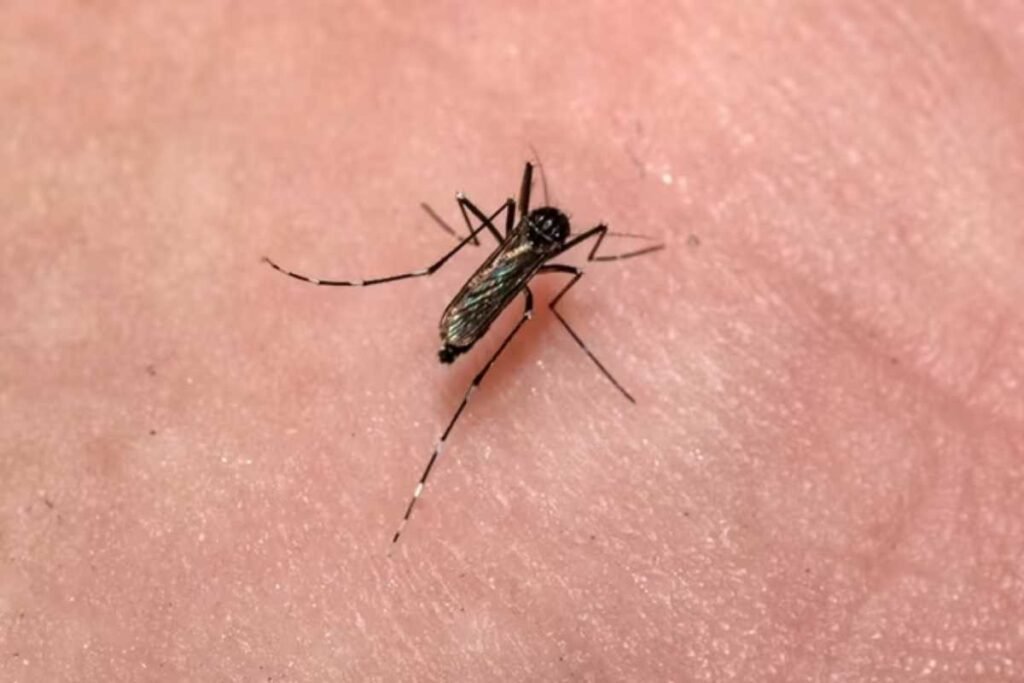[Source – newsday]
A New York resident in Ulster County has died from Eastern equine encephalitis (EEE), marking the first confirmed case of the rare mosquito-borne illness in the state in nearly a decade. In response, Governor Kathy Hochul declared the disease an imminent public health threat on Monday, outlining immediate steps to mitigate the spread of the deadly virus.
First New York Case Since 2015
The Ulster County resident, whose identity has not been disclosed, was confirmed to have contracted EEE on September 20, becoming the first human case in New York since 2015. This death is the second reported in the U.S. this year, following the death of a 41-year-old man in New Hampshire in August. According to the Centers for Disease Control and Prevention (CDC), other states, including Massachusetts, New Jersey, Rhode Island, Vermont, and Wisconsin, have also reported human cases of EEE this year.
Efforts to Curb Mosquito-Borne Illnesses
In a press release, Governor Hochul detailed the measures being taken to reduce the risk of further infections. The state’s Department of Environmental Conservation and parks agency will offer mosquito repellent at parks, visitor centers, and campgrounds. Additionally, signs will be posted in high-traffic areas to raise awareness about EEE and how to protect against mosquito bites. Local health departments will also be consulted on adjusting park hours during peak mosquito activity to limit exposure.
Dr. James McDonald, New York’s Health Commissioner, emphasized the increased threat posed by mosquitoes this year. He noted that infected mosquitoes are typically found in two or three counties annually, but this year they have been detected in 15 counties, including Suffolk County on Long Island. “Eastern equine encephalitis is different this year,” Dr. McDonald said. “Mosquitoes, once a nuisance, are now a threat.”
No Vaccine, High Fatality Risk
Eastern equine encephalitis, commonly referred to as EEE, is a viral infection transmitted through the bite of infected mosquitoes. There is no vaccine or specific treatment for the disease, which can lead to symptoms such as fever, headache, vomiting, and chills. In severe cases, EEE can cause encephalitis, or swelling of the brain, which may lead to seizures, coma, and death.
The virus is particularly dangerous for individuals over the age of 50 and children under 15. About a third of those who contract the virus die, and over half of survivors experience long-term neurological complications. With no vaccine available, the best defense against EEE is to avoid mosquito bites by using insect repellent, wearing long-sleeved clothing, and removing stagnant water where mosquitoes breed.
Broader Impact on Humans and Animals
The virus is not only a threat to humans but also to animals. Horses are particularly susceptible, with a mortality rate of up to 90%. In August, several horses across New York State tested positive for EEE, with at least two fatalities reported, one of which was in Ulster County. Additionally, two emus in Rensselaer County died from the virus earlier this month.
Eastern Equine Encephalitis is part of a broader surge in mosquito-borne illnesses across the United States this year. According to CDC data, 659 people have been infected with the more common West Nile virus, which is less deadly but still poses significant health risks.
Historical Context and Future Precautions
EEE is considered endemic to North America, meaning infections occur regularly in specific regions. In 2019, the United States experienced its largest EEE outbreak in over 50 years, with 38 recorded cases and 12 deaths. While the virus is relatively rare, it remains a persistent threat, especially in warmer months when mosquito populations are high.
With cooler weather still weeks away, New York health officials are urging residents to remain vigilant and take precautions to prevent mosquito bites. Governor Hochul’s office continues to work with local authorities to contain the spread of the virus and protect public health.
This latest fatality underscores the seriousness of Eastern Equine Encephalitis and the ongoing risk posed by mosquito-borne diseases, both in New York and across the country.









